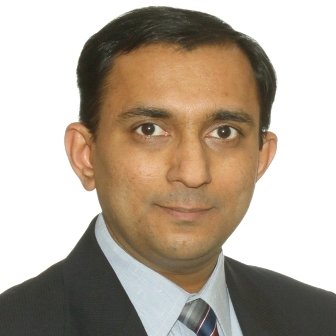By Carla Short
In
2017-09-192017-09-19https://wvuieleaders.com/wp-content/uploads/2016/09/[email protected]WVU IE 200px200px
200px200px
 200px200px
200px200pxWhen Kumar Rampura finished his undergraduate degree in Industrial Engineering, quality control was a major focus in India. He decided to come to America to further his background in quality management.
The transition to the U.S. was not easy since Kumar did not have a full scholarship. He had to work while pursuing his Master’s. America also was a much more open society.
When Kumar graduated, he went to work for Time-Warner. He also acquired the “entrepreneurial bug” because this was the direction he saw industry going. He decided to pursue an MBA degree at the University of Louisville while working at Time-Warner.
“At Birlasoft, I became involved in customer relationship management and business transformation work,” Kumar explains. “As a Customer Relationship Manager, I led sales pursuits and closed deals. Later as a Business Transformation manager, I was involved in improving strategic, operational and commercial excellence. These roles were more generalist in nature and wasn’t making full use of my technical and business degrees. Hence, I decided to return to a career path in Data and Analytics which was more technical.”
Kumar began to use his background in statistical analysis and data management. He became involved in the relatively new field of big data analytics. For most of his career, Kumar has led the development of data and analytics applications for manufacturing, healthcare, insurance, and banking companies.
“I lead data and analytics development teams. I have found that to build analytic applications that generate most business value, collaboration is key to success. You need to be able to get the mathematical modelers, data analysts and programmers to work together. My early experience in business transformation has also given me a sense of the information and insight management would need from the data and analytical applications.”
When asked if data analytics is a career opportunity for undergraduates, Kumar offers this advice: “An undergrad could work well implementing models already built, but you need a Master’s degree to build new models.”
In addition to two Master’s degree, Kumar has spent more than $20,000 on updating his skills in the area of data and analytics. These are certifications, online training, and specialized training.
Kumar also points out that agile project delivery practices are also important. “We need to implement models quicker and at lower cost. The time to market is drastically reducing to go from a newly developed model to implementation in production to be used in automated decision making. An experimentation approach to build models, implement applications, measure business impact and learn from the models is creating competitive advantage to leading companies in the retail and banking industries.”
Data & Analytics Services Leader with 16+ years of experience in leading application development at various companies. Kumar works with business and technology teams to design solutions and manage delivery of data driven products. He is a trained Information Management professional and a certified Scrum Master. Kumar’s current projects involve architecting complex Information Delivery platforms using Big Data technologies (like Hadoop and Spark) and API based Data Services for data access. He has managed projects involving ingestion of financial data into Hadoop, integration of data into a common data model, processing of data using Spark, validation of data quality using business rules, capturing metadata and data lineage, building of reports using BI platforms, and development of scoring engines using predictive models. Kumar’s expertise is in helping companies manage their strategic business transformation using data driven insights and agile methodologies.